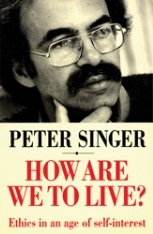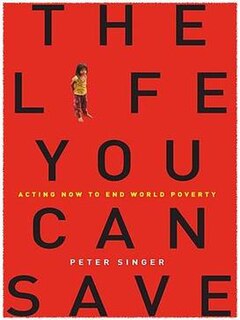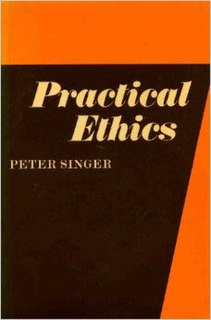 W
WAnimal Liberation: A New Ethics for Our Treatment of Animals is a 1975 book by Australian philosopher Peter Singer. It is widely considered within the animal liberation movement to be the founding philosophical statement of its ideas. Singer himself rejected the use of the theoretical framework of rights when it comes to human and nonhuman animals. Following Jeremy Bentham, Singer argued that the interests of animals should be considered because of their ability to experience suffering and that the idea of rights was not necessary in order to consider them. He popularized the term "speciesism" in the book, which had been coined by Richard D. Ryder to describe the exploitative treatment of animals.
 W
WA Darwinian Left: Politics, Evolution and Cooperation is a 1999 book by the philosopher Peter Singer. In the book, Singer argues that the view of human nature provided by evolutionary science, particularly by evolutionary psychology, is compatible with the ideological framework of the Left and should be incorporated into it.
 W
WHow Are We to Live?: Ethics in an Age of Self-Interest is a 1993 book about applied ethics by bioethical philosopher Peter Singer. Singer argues that doing the right thing involves attending to the sufferings and preferences of other sentient beings.
 W
WIn Defence of Animals: The Second Wave is a 2005 book edited by the philosopher Peter Singer. It contains chapters by Gaverick Matheny, Richard Ryder, Paola Cavalieri, Paul Waldau and others. The authors makes several arguments why harming animals is bad.
 W
WThe Life You Can Save: Acting Now to End World Poverty is a 2009 book by Australian philosopher Peter Singer, in which the author argues that citizens of affluent nations are behaving immorally if they do not act to end the poverty they know to exist in developing nations.
 W
WThe Most Good You Can Do: How Effective Altruism Is Changing Ideas About Living Ethically is a 2015 Yale University Press book by moral philosopher and bioethicist Peter Singer describing and arguing for the ideas of effective altruism. As a follow-up to The Life You Can Save, which makes the moral argument for donating money to improve the lives of people in extreme poverty, the new book focuses on the broader question of how to do the most good.
 W
WOne World: The Ethics of Globalisation is a 2002 book about globalization by the philosopher Peter Singer. In the book, Singer applies moral philosophy to four issues: the impact of human activity on the atmosphere; international trade regulation ; the concept of national sovereignty; and the distribution of aid.
 W
WPractical Ethics is an introduction to applied ethics by moral philosopher Peter Singer. The book has been translated into a number of languages.